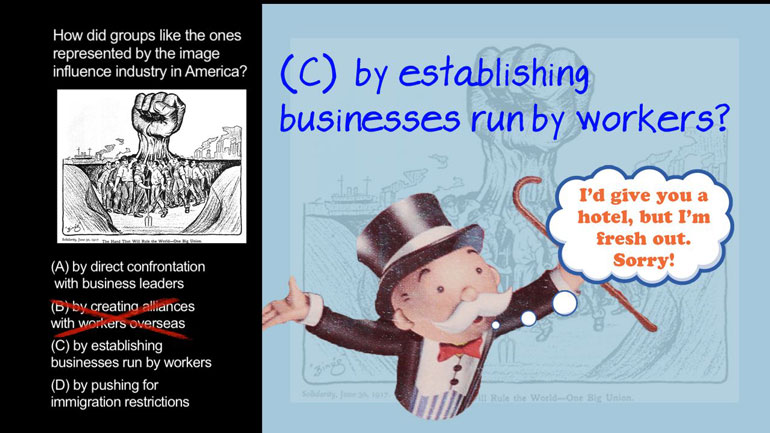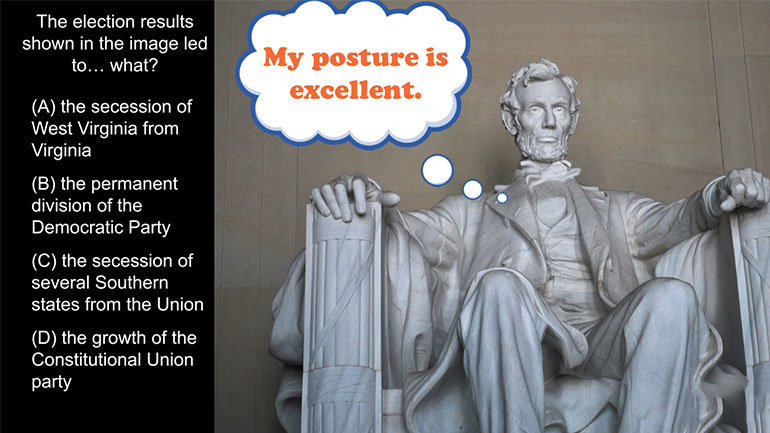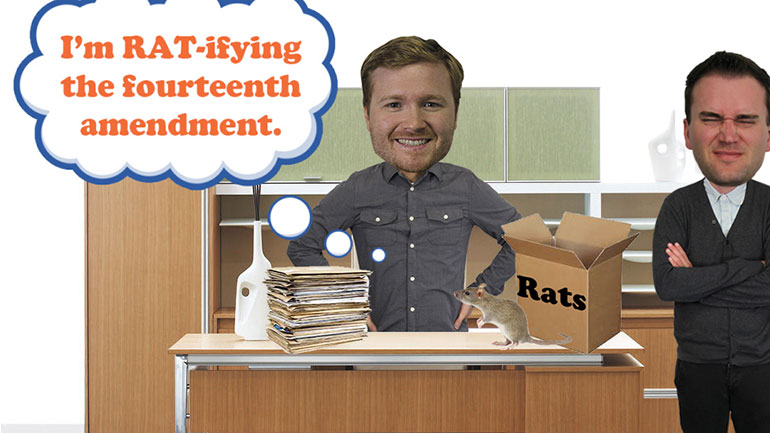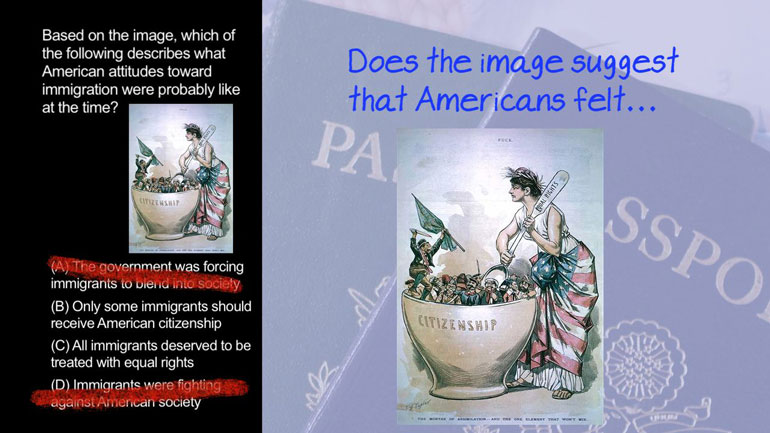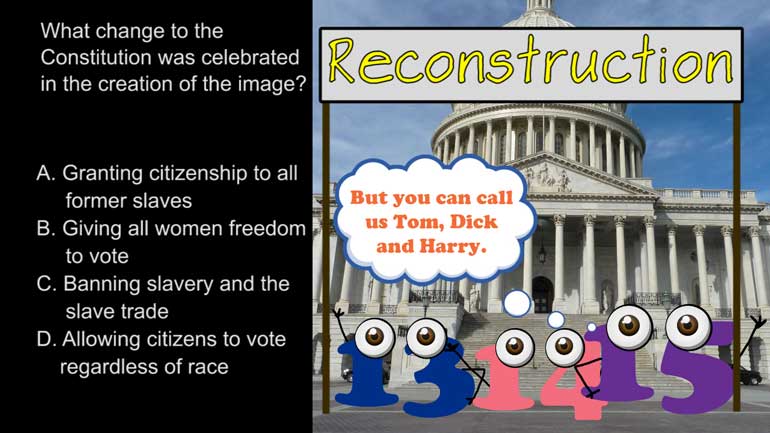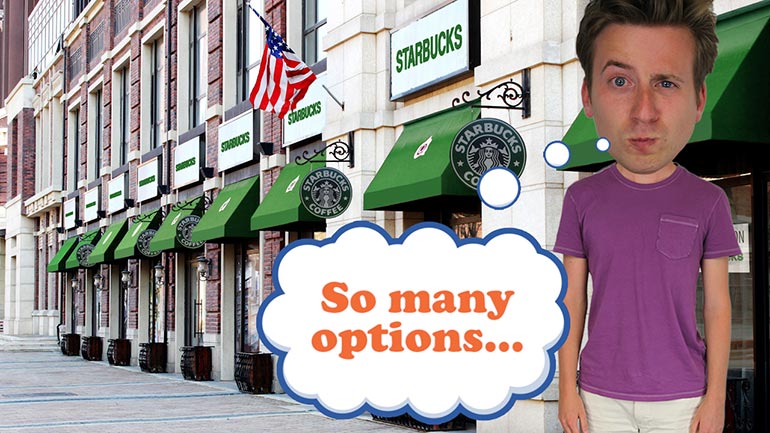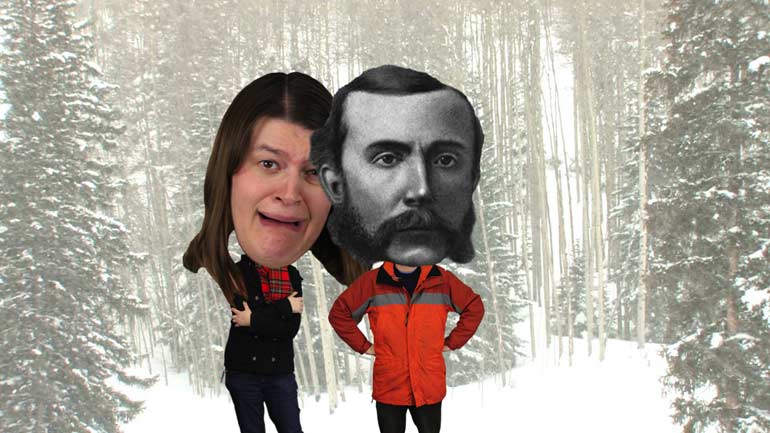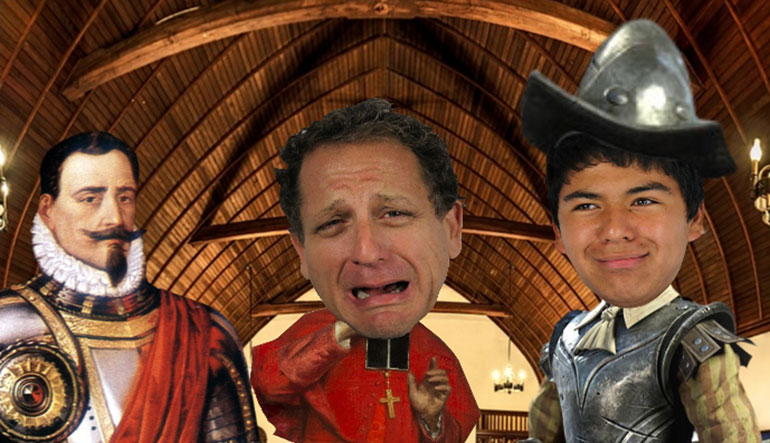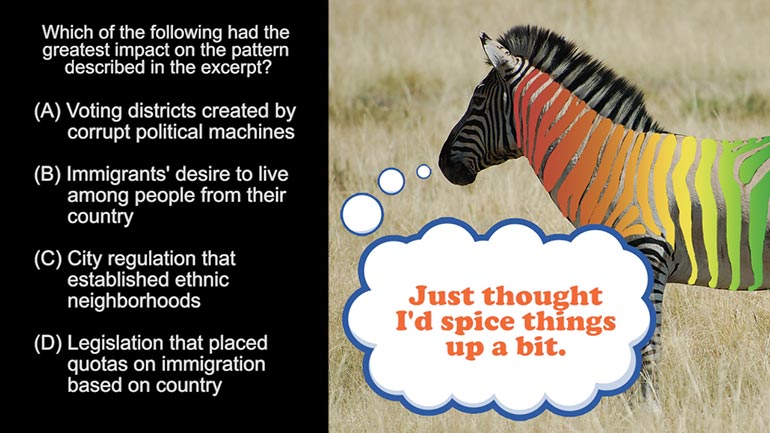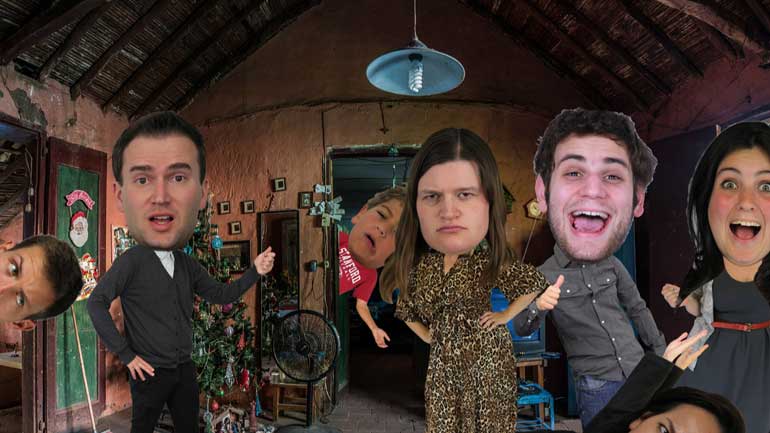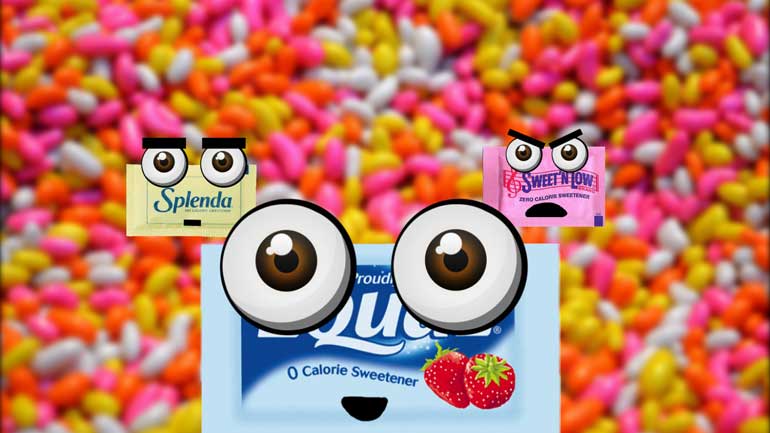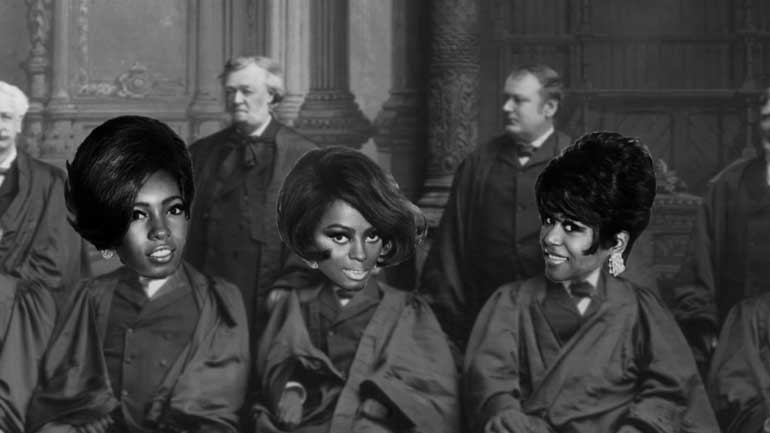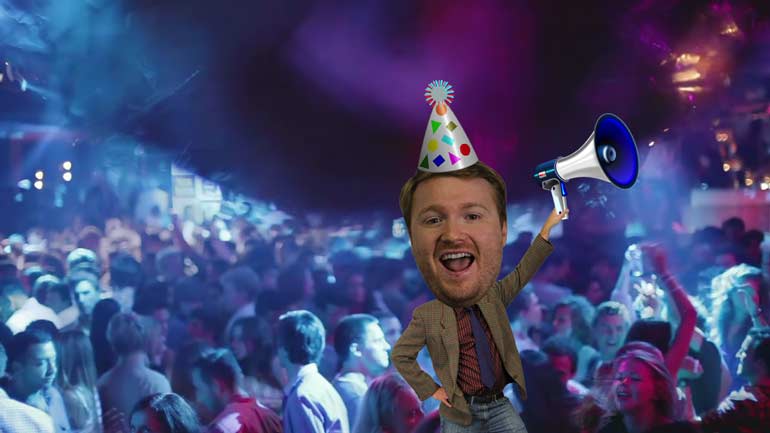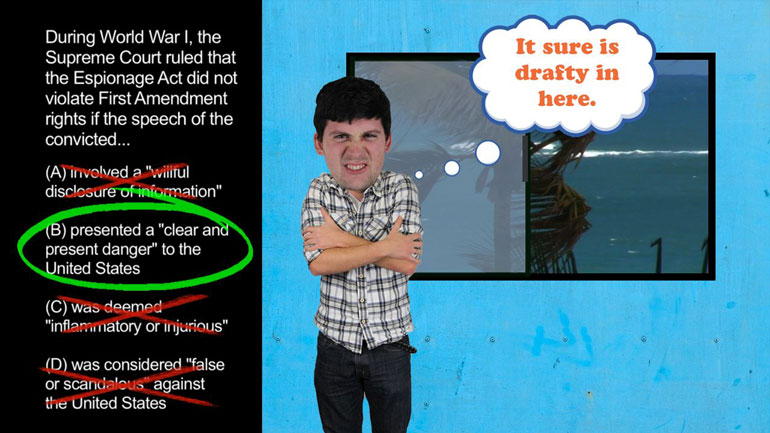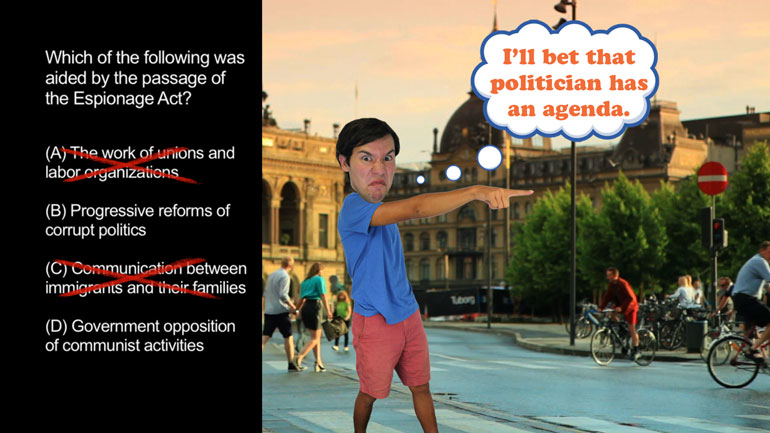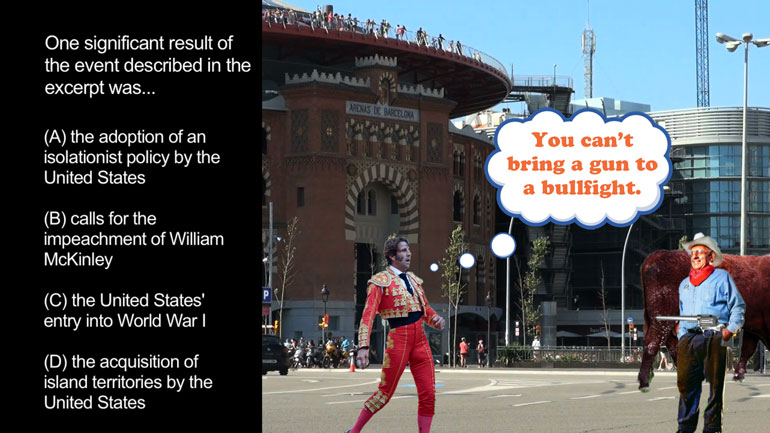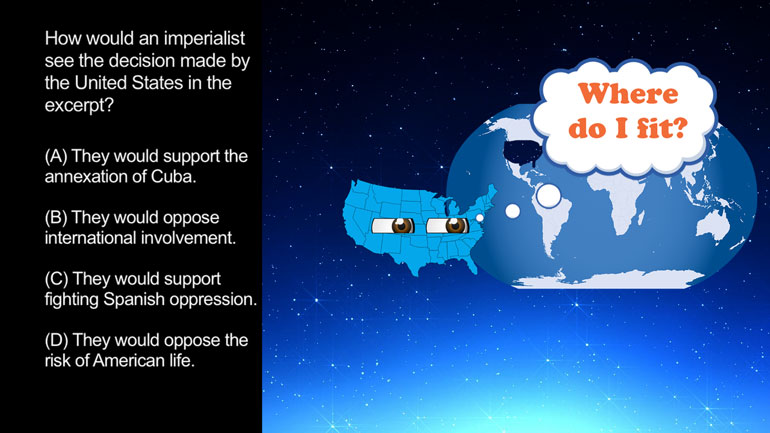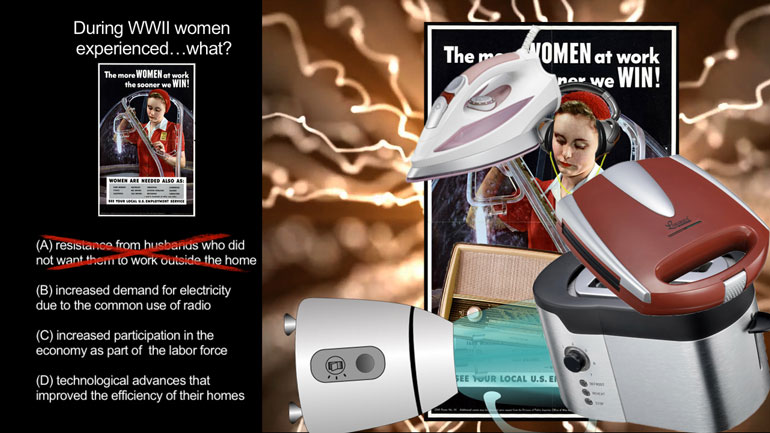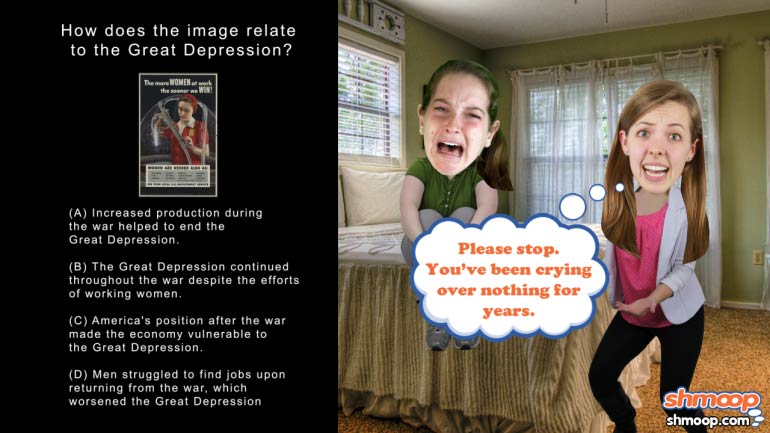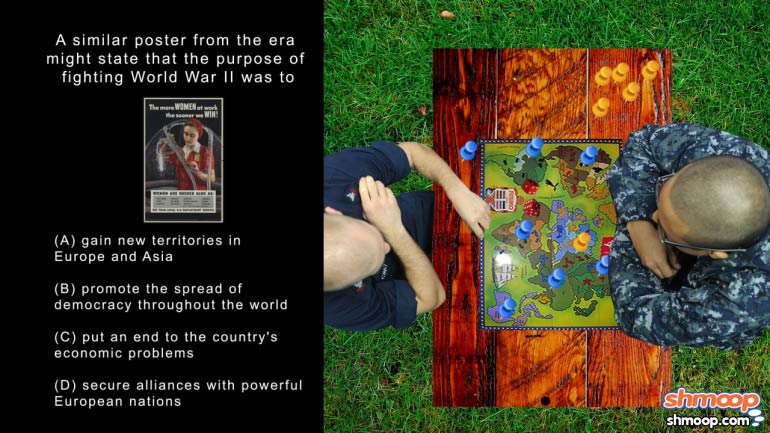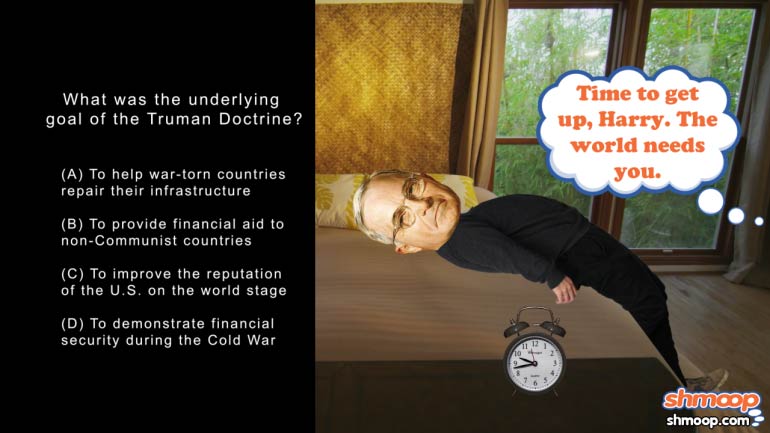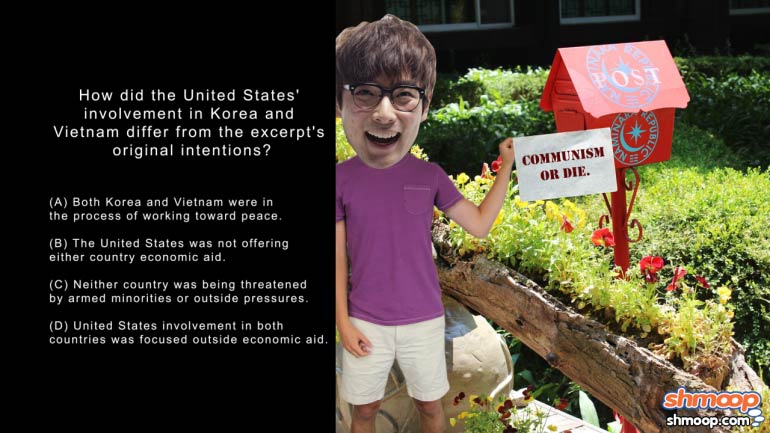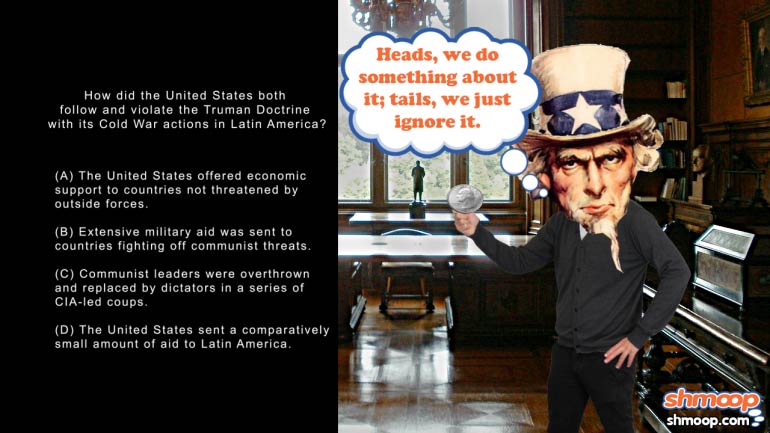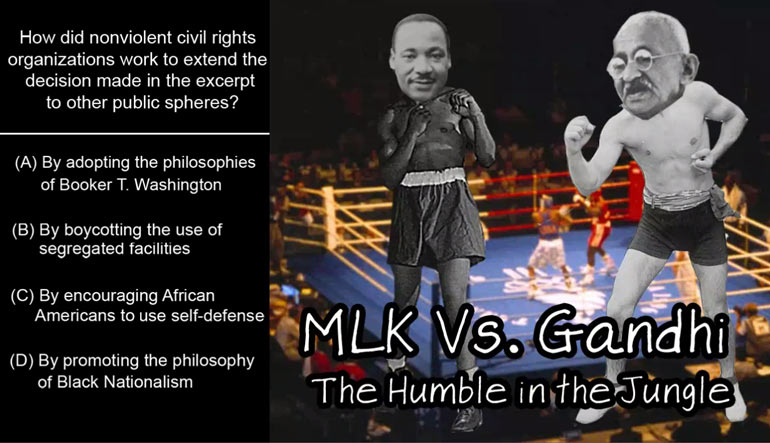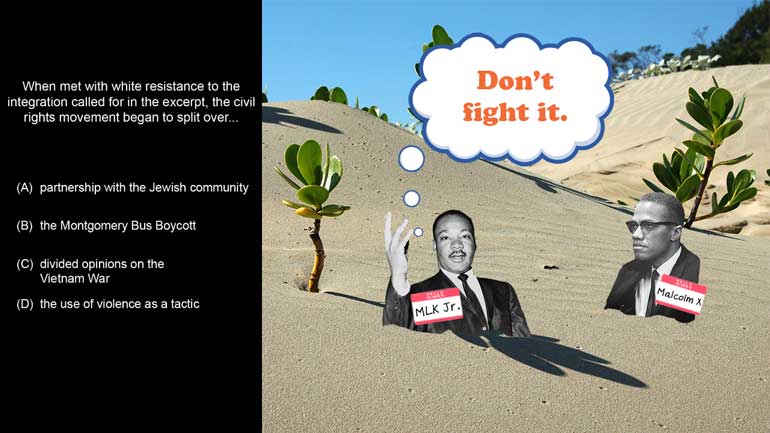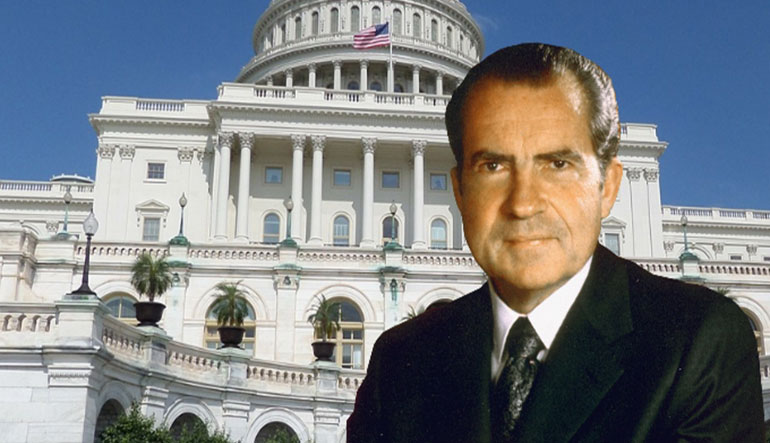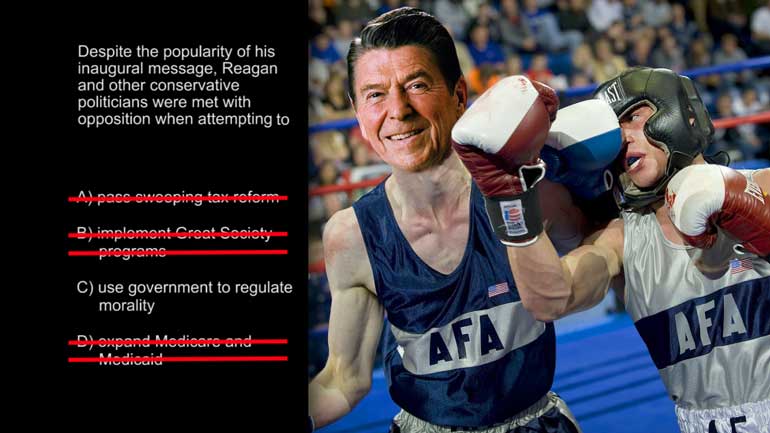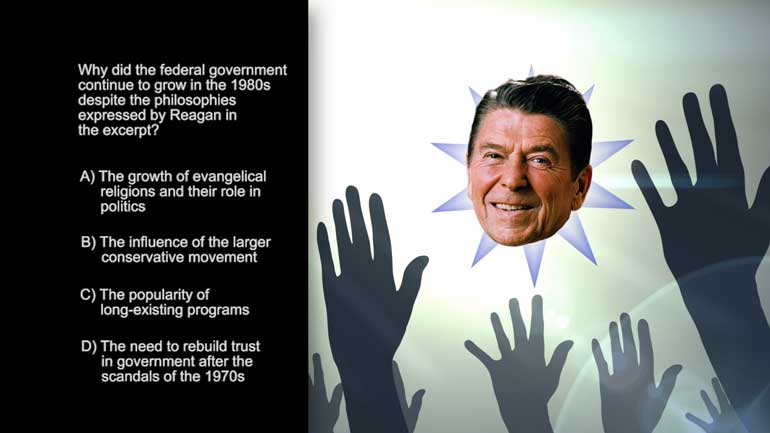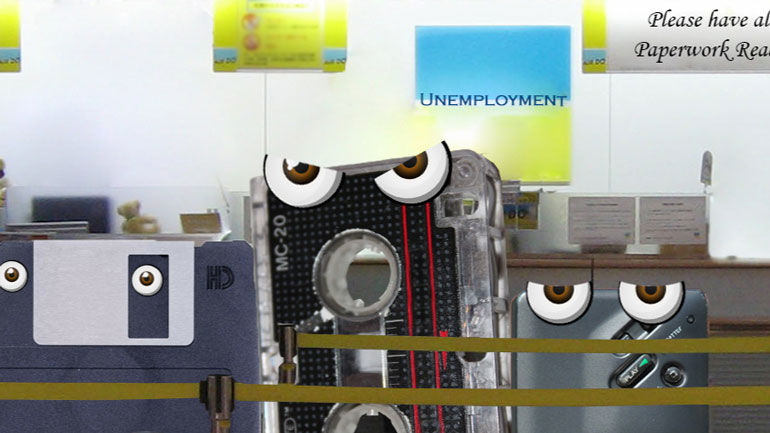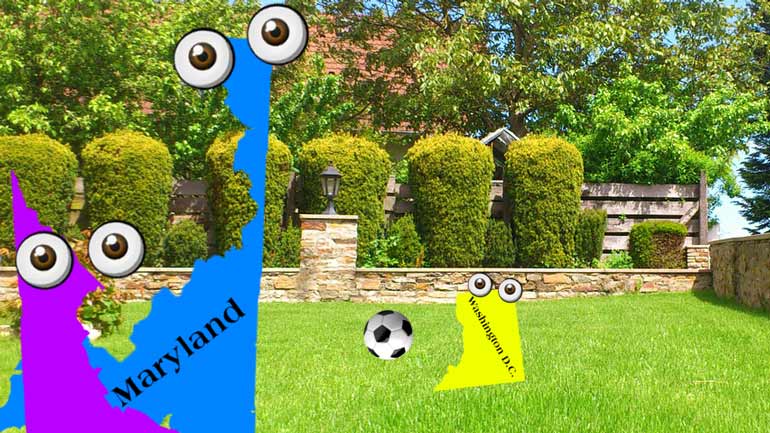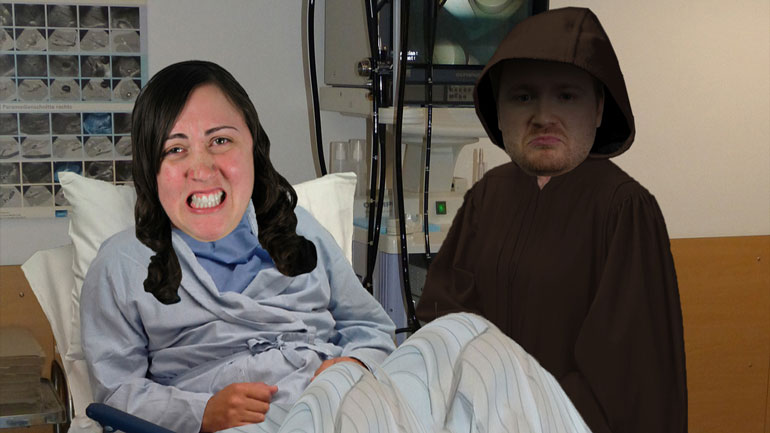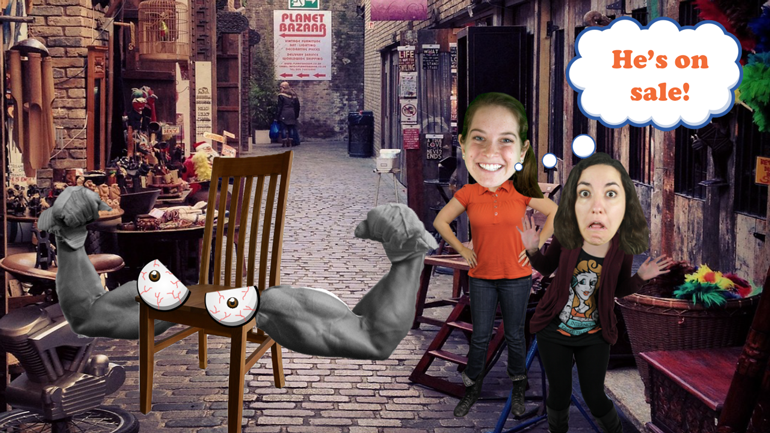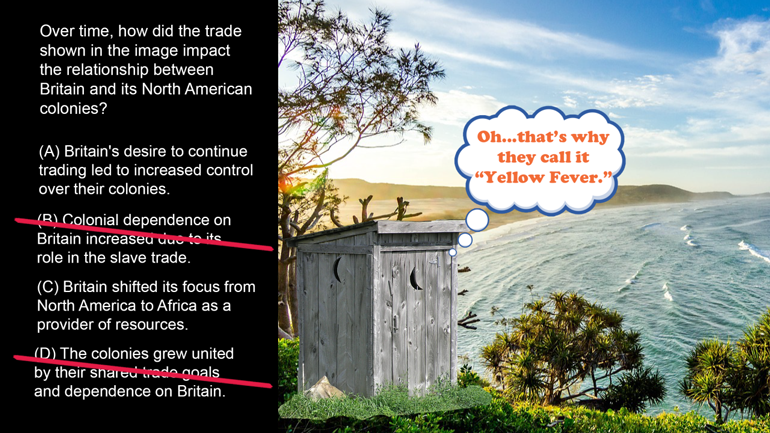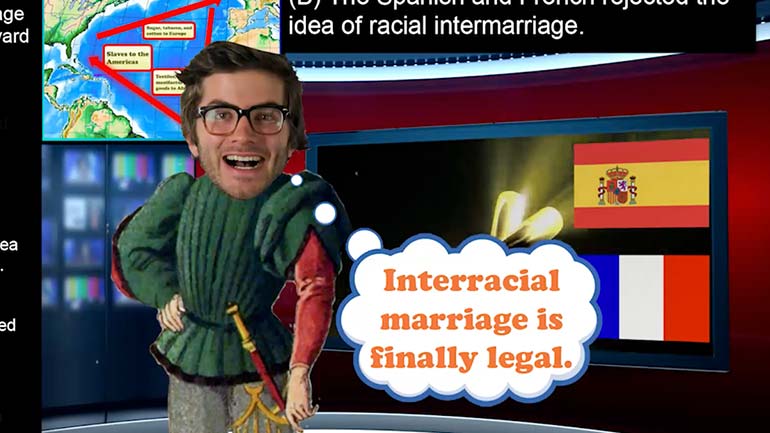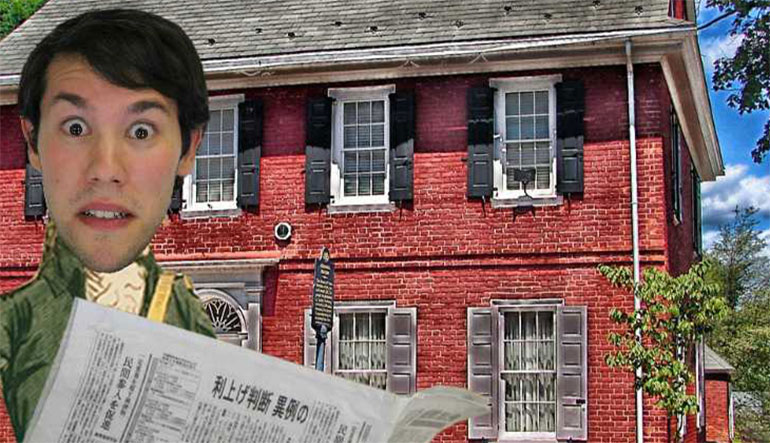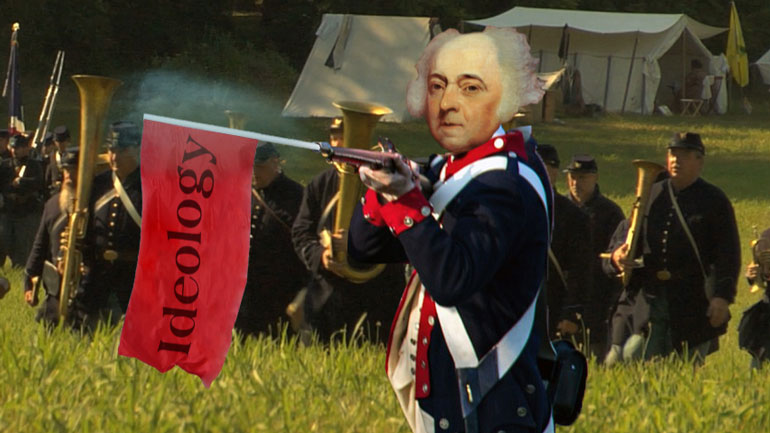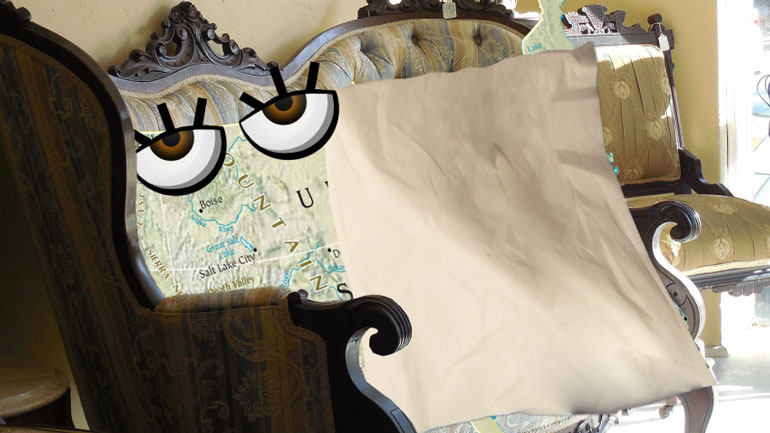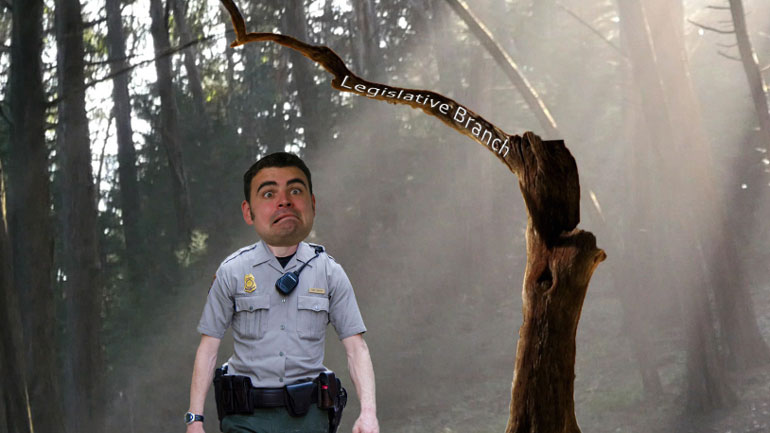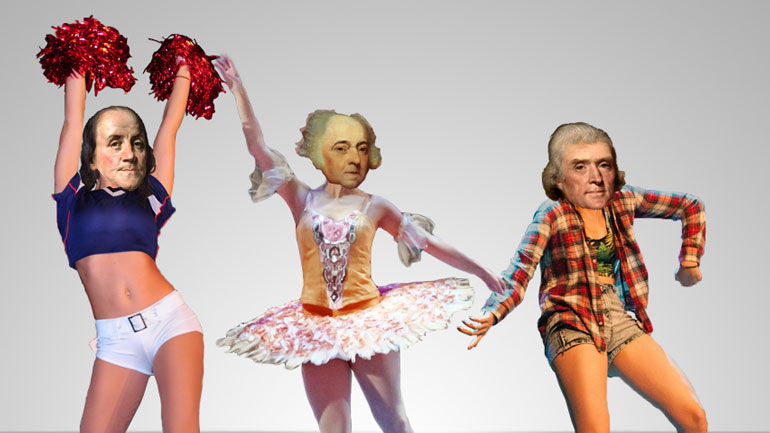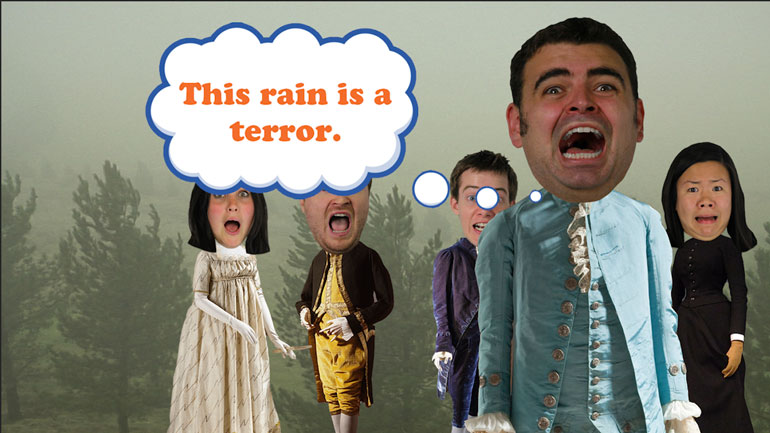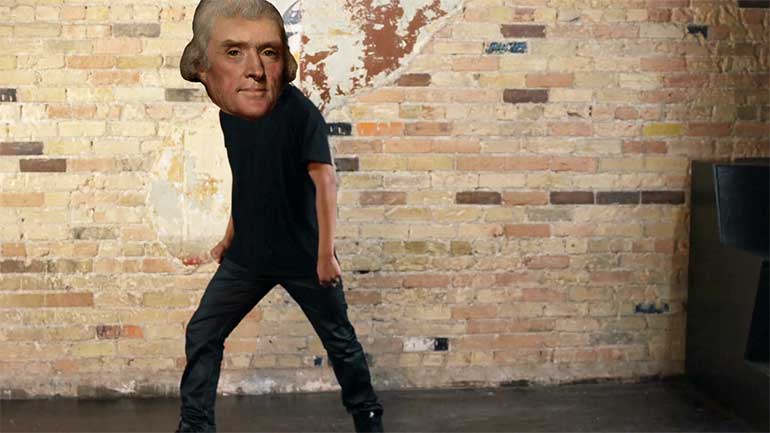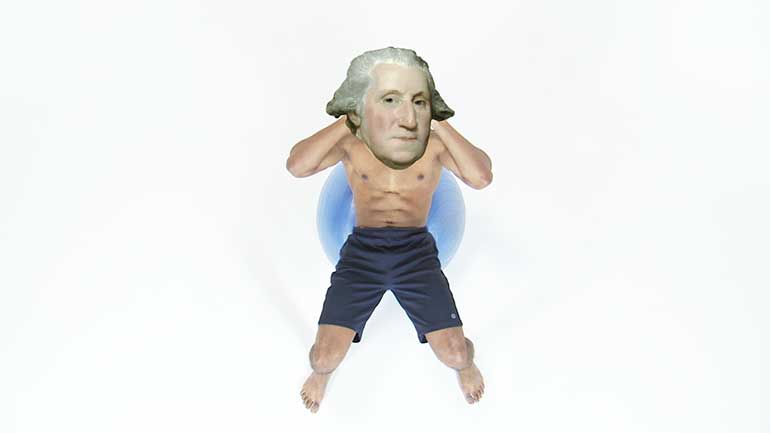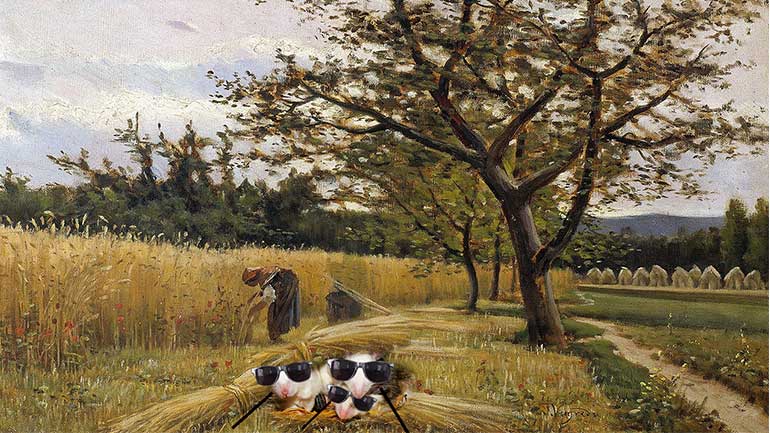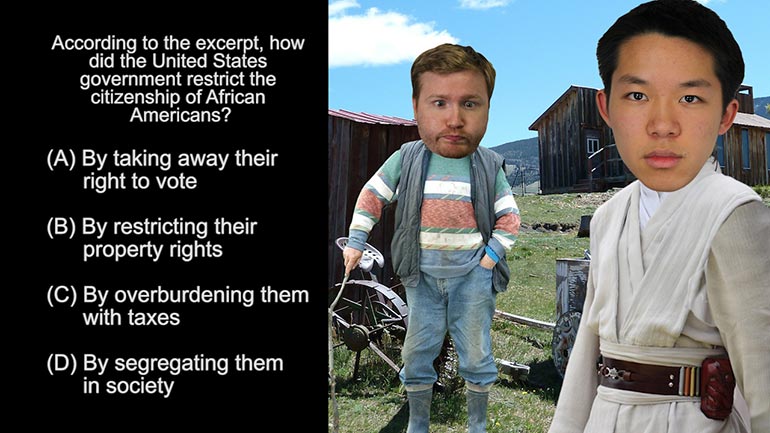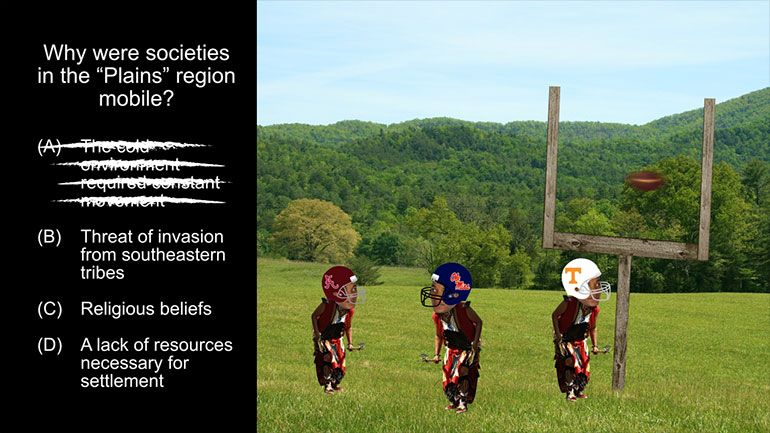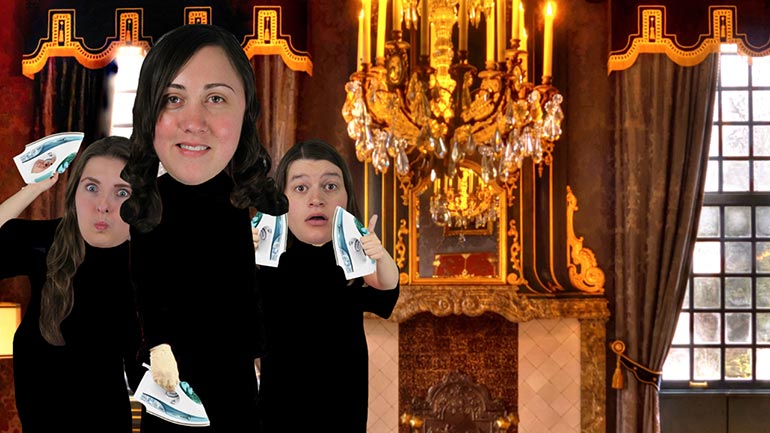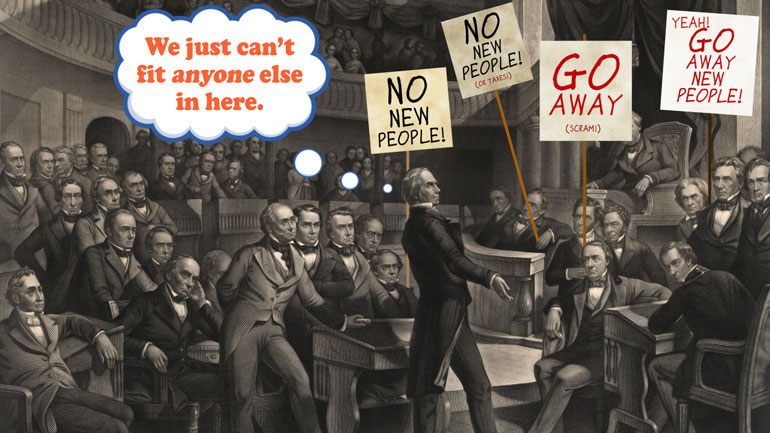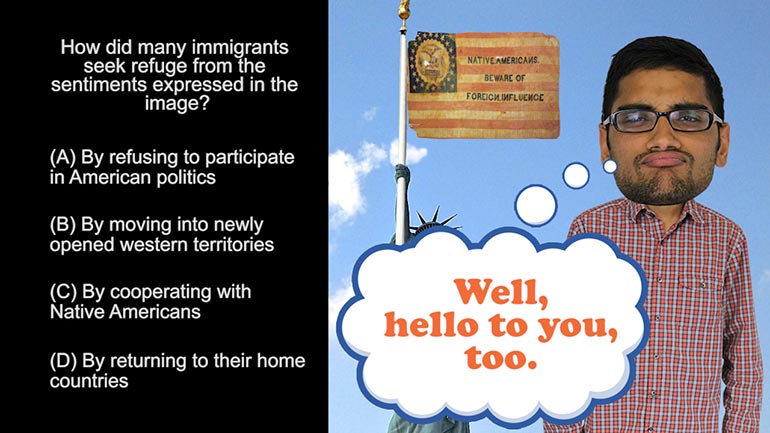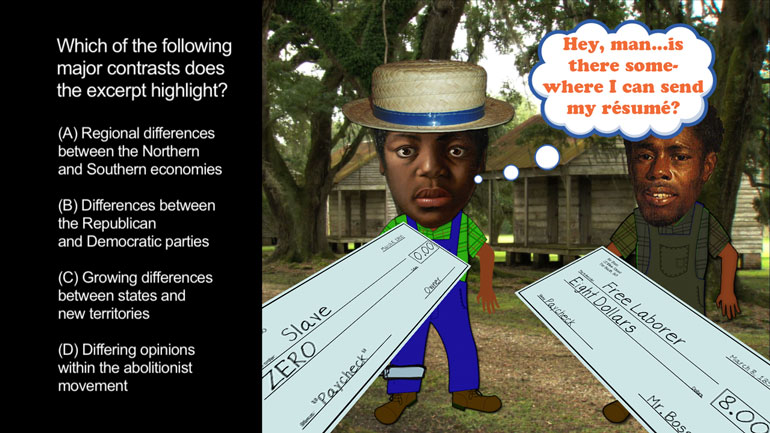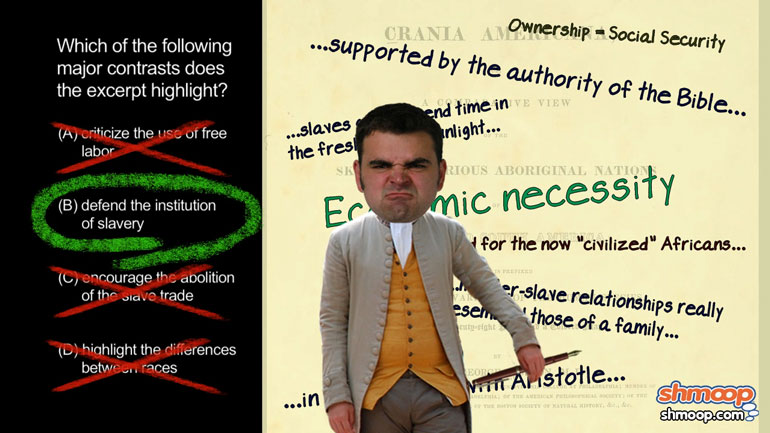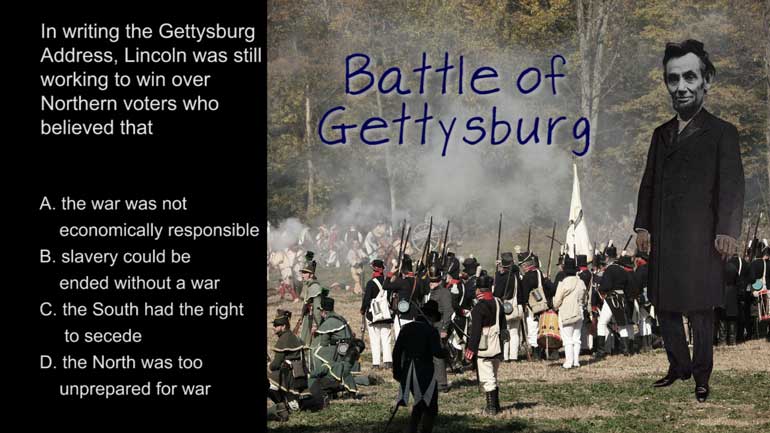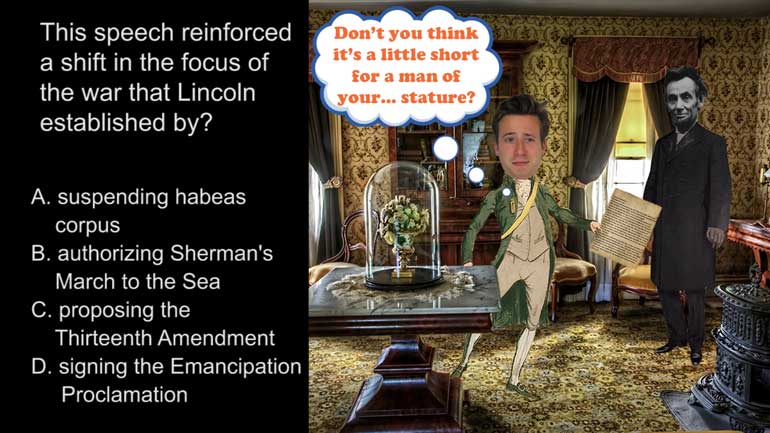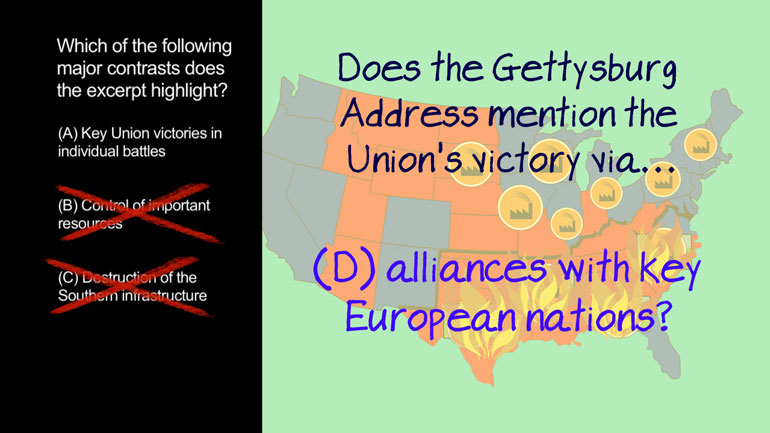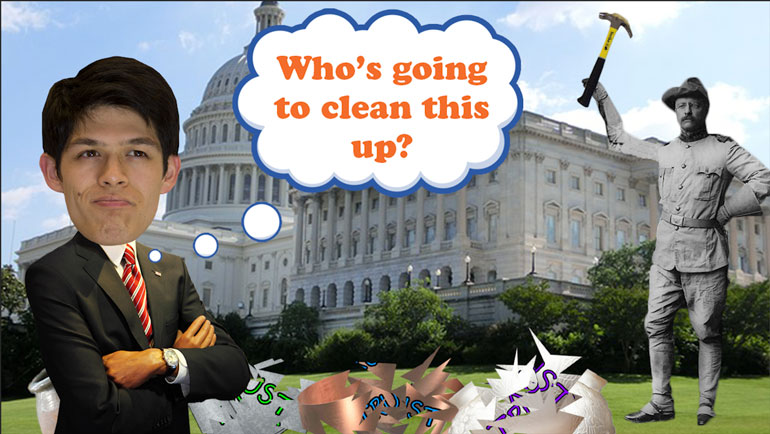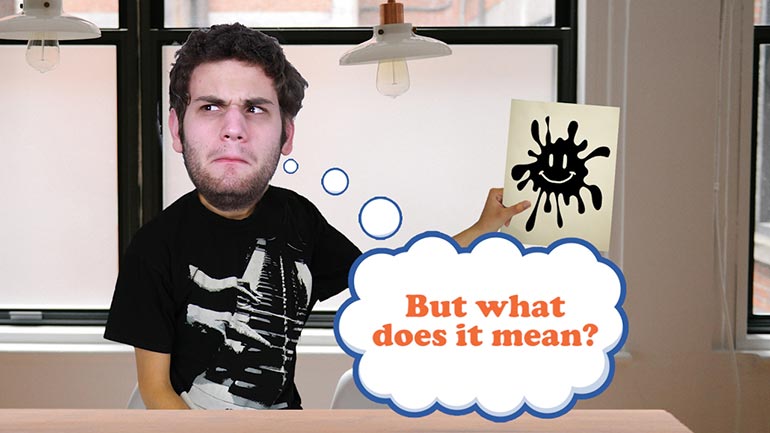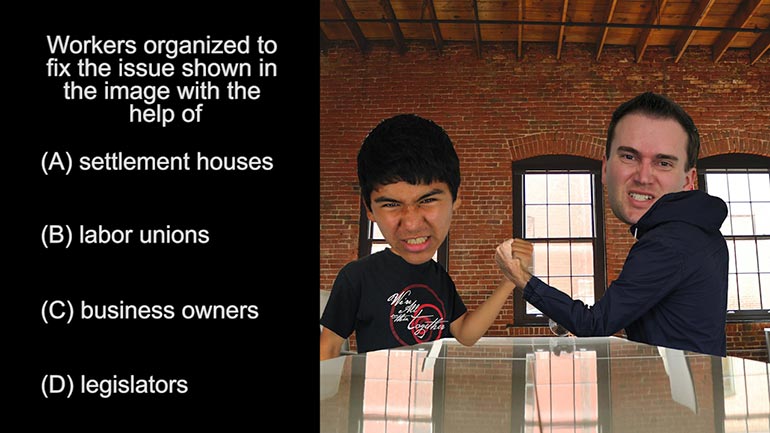ShmoopTube
Where Monty Python meets your 10th grade teacher.
Search Thousands of Shmoop Videos
AP U.S. History Videos 277 videos
AP U.S. History Diagnostic 1. Relationships like the one shown in the image resulted in the development of...what?
AP U.S. History Diagnostic 15. How did groups like the ones represented by the image influence industry in America?
AP U.S. History Diagnostic 10. What led to the splintering of the political parties shown in the image?
AP U.S. History Exam 1.33 170 Views
Share It!
Description:
AP U.S. History Exam 1.33. Which of the following bore the most similarity to Plessy v. Ferguson?
Transcript
- 00:00
[ musical flourish ]
- 00:03
And here's your Shmoop du jour, brought to you by the Supremes Court,
- 00:07
Motown's most prestigious judicial body.
- 00:10
All right, first up, the excerpt.
- 00:11
[ mumbles ] Plessy versus Ferguson, all right.
Full Transcript
- 00:19
And now the question:
- 00:20
Which of the following bore the most similarity to
- 00:22
Plessy versus Ferguson? And here are your potential answers.
- 00:25
[ music ]
- 00:31
The ruling in Plessy v. Ferguson
- 00:33
affirmed the constitutionality of "separate
- 00:36
but equal," which threw a huge wrench in African Americans'
- 00:40
plans for racial equality. Are the same ideas behind the
- 00:43
Plessy v. Ferguson ruling reflected in B -
- 00:46
Brown v. Board of Education?
- 00:48
Well, actually, Brown versus the Board of Education was the case
- 00:51
that essentially overturned Plessy versus Ferguson,
- 00:53
at least in regards to segregated schools.
- 00:56
So they're pretty much the exact opposite.
- 00:58
Same goes for the Civil Rights Act of 1964,
- 01:01
which outlawed discrimination based on race as well as sex,
- 01:04
religion, and national origin. So that's quite the case
- 01:06
against B and C. Good-bye.
- 01:07
Did Plessy v. Ferguson share any similarities with
- 01:11
D - the goals of the Populist Party?
- 01:13
Well, the Populist Party advocated more for economic
- 01:16
policies protecting farmers, not civil rights.
- 01:19
So that mows over D, too.
- 01:21
Which means that the ruling in Plessy v. Ferguson has the most in common
- 01:25
with A - "Jim Crow" segregation laws.
- 01:28
Jim Crow laws required African Americans to drink
- 01:31
from separate water fountains, receive treatment
- 01:34
in separate hospitals, and ride in separate train cars.
- 01:37
Plessy v. Ferguson rubber-stamped this segregation
- 01:40
by affirming that whole "separate but equal" business.
- 01:43
So the answer is A.
- 01:44
Though the Supreme Court is supposed to protect the rights of all citizens,
- 01:48
well, sometimes you really have to question its judgement.
Related Videos
Ever heard of a "living document"? They eat and breathe just like the rest of us! They even walk around on their own two legs. Okay, fine—maybe t...
If the Puritans had gotten their way, religion would play a much larger role in lawmaking these days. Want to know more? Watch the video for all th...
What happened between the creation of the Articles of Confederation and the ratification of the current U.S. Constitution? This video analyzes the...
The Modernists thought the world had a lot of problems, and they were intent on fixing them—or at least talking about fixing them. Unfortunately,...
This video explains Federalism and the quest for a fair balance between state and national power. It covers the progression and compromises of Fede...

